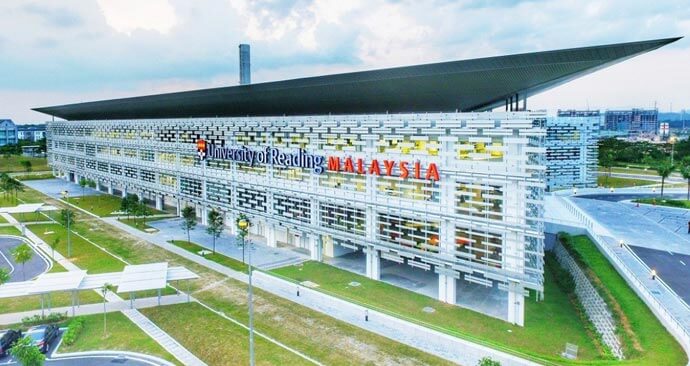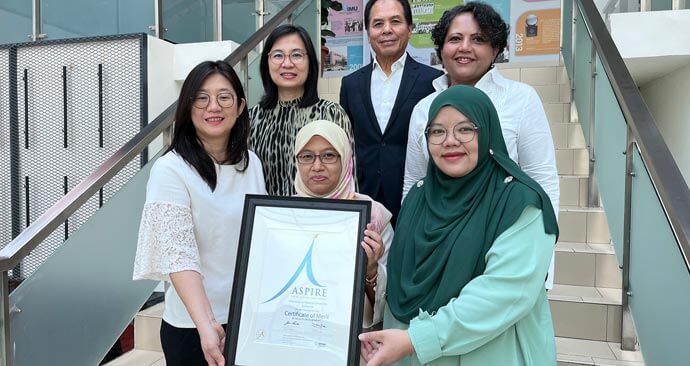
Bachelor of Engineering (Honours) Mechatronics Engineering student Ho Wei Liang from Lee Kong Chian Faculty of Engineering and Science and his team, The Cool Team, won the Technical Innovation Team Award at the Tsinghua Global Summer School (GSS) SDG Hackathon, held virtually from 4 to 10 July 2022. It was streamed from Tsinghua University, China. His teammates were Tsinghua University students Theodore Maximus T., Dukkyu Lim, Andrew Winarta, Dennis Octovan, Soh Wei Meng and University of Indonesia student M. Zaky Nur Fajar.
Ho enthused, “We are very happy to win this award. The team presented well and they presented in an innovative approach that combines AI and Blockchain-enabled drones and ground robots team to address the current challenges of wildfires more effectively. Our members, who came from various teachnical backgrounds, such as automation, computer science, and AI brought a great advantage, as we were able to use multiple technologies to solve this problem. We are grateful for the recognition received for our project.”
The aim of the competition was to guide students to think of ways on solving the development problems in three aspects, namely society, economy, and the environment from a comprehensive perspective, and to enable the students to actively contribute their wisdom and strength to the sustainable development of the world and mankind after the epidemic.
The team participated in the Hack 7 category which was themed How AI Can Help Us Build An Intelligent and Sustainable Future?. Their project was titled Decentralised Artificial Intelligence Forest Fire Prevention System. Ho explained, “Global forest fires are predicted to increase by up to 14% by 2030. This is the priority issue because it has a higher short-term and long-term effect than some other forest problems. In addition, forest fires are more vulnerable in equatorial developing countries because of climate change. In addition to that, forest fires have an exponential spread pattern a line with the amount of fuel burned. Therefore, a fire management system is needed to prevent and extinguish fires quickly.”
He continued, “Our solution is to design forest fire detection based on satellite images. The AI system can tell the node on the number of drones needed to distinguish the fire based on the level of fire. Predicting the best path for the firefighters to distinguish the fires, the drone swarm will incorporate decentralised AI and will be able to send data and communicate with each other without breaking the data privacy law. The drones have built-in sensors to map the terrain, and also sensors to detect forest fires. A crucial component of our solution is the smart power station, which will be equipped with servers and also solar-powered. The ground robot team is to maintain the forestry landscape via weed control and forest clearing, which significantly reduces the potential of wildfires.
He also mentioned that this system can help achieve many SDGs, especially SDGs 3, 13, and 15. He elucidated, “Our solution will tackle SDG15, which is life on land by preserving the forest ecosystem and its inhabitants, and also Goal 13 and Goal 3, which are Climate Action and Humans Well Being, respectively. By putting out the fire faster, we also prevent regressing the progress for SDGs 6 and 14. We will also save consumables that can be harvested from forests, therefore, this solution will also help achieve SDGs 1 and 2. In addition, it is estimated that preventing one hectare of forest from burning can provide economic and social benefits of at least $20,039.65. Economically, this solution is estimated to be able to save $6,192.3 per hectare of forest saved from fires, while accelerating community activities, such as trade, agriculture, mobility and even tourism. We also look into the importance of preserving as many areas of the forest because it can absorb around 3.5 tons Co2 per hectare forest saved, prevent 1.835 tons of CO₂ released into the atmosphere for every one hectare of forest burned, reduce around $20.039,65 social cost from CO2 per hectare forest saved. These positive impacts will also help protect 192 people from acute respiratory infection per 100 hectare forest saved, and save $58.1 of health costs per hectare forest saved.
The GSS SDG Hackathon has set 11 sub-tracks, covering healthy food, living environment, healthcare, healthy lifestyle, artificial intelligence and our future, meta-universe and smart city, digital education, career development, and health communication. Participants could flexibly choose the track according to their interests, form an interdisciplinary team with peers, and cooperate online on issues related to sustainable development in a certain field to jointly tackle innovation challenges and contribute to the health and sustainability of all mankind. The course is open to all Tsinghua students and admitted Tsinghua international students, combined with the 17 UN Sustainable Development Goals, designed to different themed sub-tracks to attract student innovators to participate. There are no school restrictions, no department restrictions, no major restrictions, and no grade restrictions. Students can freely choose the challenge topics according to their interests, form an interdisciplinary innovation team on site, and work hard to develop innovative solutions for challenges related to a certain field. In the end, the solutions would be presented to the judges and the public.
Online Education Fair 线上教育展
Universiti Tunku Abdul Rahman (UTAR)
拉曼大学
https://edufair.fsi.com.my/utar












